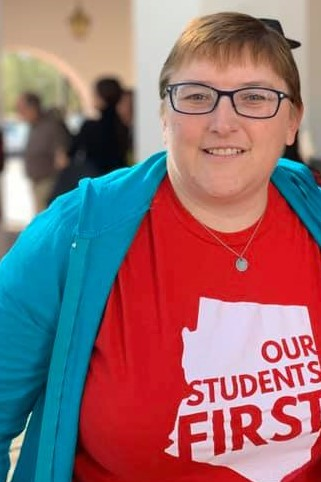Restoring Peace in the Classroom
Peace in Relationships
Rachael Eggebeen
James 1:19
My dear brothers and sisters, take note of this: Everyone should be quick to listen, slow to speak and slow to become angry. (NIV)
Matthew 18:15
“If your brother or sister sins, go and point out their fault, just between the two of you. If they listen to you, you have won them over.” (NIV)
Reflection: In a middle school classroom, relationships built on respect are the number one predictor of student success. Teachers who prioritize building relationships tend to have students who are more willing to try new skills, and those students tend to have higher test scores. On the other hand, students who do not feel like their teacher supports them will often shut down. At the middle school age, even the slightest indifference can destroy a relationship, whether between two friends or between student and staff member. “Restorative conferences” hosted by school counselors can play a key role in building those relationships effectively, and in rebuilding relationships that may falter over the school year.
This fall, I had an extremely talkative class. If I paused to breathe while giving instructions, my students would start talking. As the first quarter progressed, I knew that something had to change. I was at a point where it seemed like the only ways forward were either applying whole-class punishments or taking the time to build a trusting relationship with each of the talkers. I chose to build relationships.
Each week, I focused on getting to know a new talker. An important part of building the relationship was letting them tell me why they like to talk. In time, they started to understand when it was appropriate to talk. We devised different methods to remind them of when to be quiet. One student asked that I just say his name and motion to be quiet. Another student, who sat near the front, asked that I simply tap his desk and motion to be quiet. Another student asked that I pull my ear and motion to be quiet.
What does this have to do with restorative conferences — what does that even mean? Well, it means a mediated conversation (in this case, between student and teacher) that gives a chance for two people to clearly and privately express and reconcile their concerns. For example, one student felt picked on because I often called her name and asked her to be quiet. She felt that I was targeting her when others were also talking.
My student asked our counselor to lead a restorative conference with me, and one was scheduled. My student was able to share her feelings. I was able to share that not all redirection is verbal. I asked her to notice where I stand in the classroom (in front or near a student), and I asked her to watch my motions when I was addressing the class.
The counselor asked my student if not talking during instructions was a fair expectation for her and the entire class. The student was able to come to an agreement with me about how I could remind her to not talk during instructions. We agreed that I could call her name and ask her to be quiet. This worked the best, as she sat in the back of the classroom and wanted to know why I was calling her name. We also agreed that I would try to use a lower voice level so it would appear to be a conversation between us and differentiate learning from behavior redirection.
The result of this conversation was immediate. My student still liked to talk, but she was now aware of how I worked to meet the needs of every student. The number of reminders my student needed was reduced over the semester. More importantly, she and I were developing a solid relationship built on respect. In the spring, my student’s schedule was changed in a schoolwide reorganization, but she and I would still check in with each other — all because of one restorative conference.
Practice for Peacemakers: When you next come into conflict at the workplace, at church or in school, take a step back before jumping into action. Discern whether there is a space in which you can resolve the conflict constructively. Prepare for this situation by asking yourself: “Is there a trusted third party who can help to mediate and de-escalate the tensions in each of these areas of my life?” If not, keep watch for people with the training and emotional maturity to help perform these vital functions responsibly.
Prayer: Dear God, we give you thanks for good teachers and school counselors. Help us to remember your call to extend grace, even in person-to-person confrontations. Whether as educators, friends, parents or as colleagues, may we be granted the patience to seek common denominators when disagreements get in the way of communication. In the name of Jesus, our teacher of your Way, Amen.

Rachael Eggebeen has taught middle school social studies for seven years and served as co-chair of the Presbyterian Church (U.S.A.)’s Advisory Committee on Social Witness Policy (ACSWP). She is also a member of the PC(USA)’s “Educate a Child” team.
This year’s Season of Peace Resources are designed to help participants explore practices for building peace on every scale. From the personal level to global issues, these reflections and prayers will help grow the faith and witness of the whole church. Throughout the 29 days of the 2020 Season of Peace, we are invited to reflect upon:
Week 1 September 6–12: Peace Within
Week 2 September 13–19: Peace in Relationships
Week 3 September 20–26: Peace in Community
Week 4 September 27–October 3: Peace in the World
Final Day October 4: Holistic Peacemaking






No comments:
Post a Comment